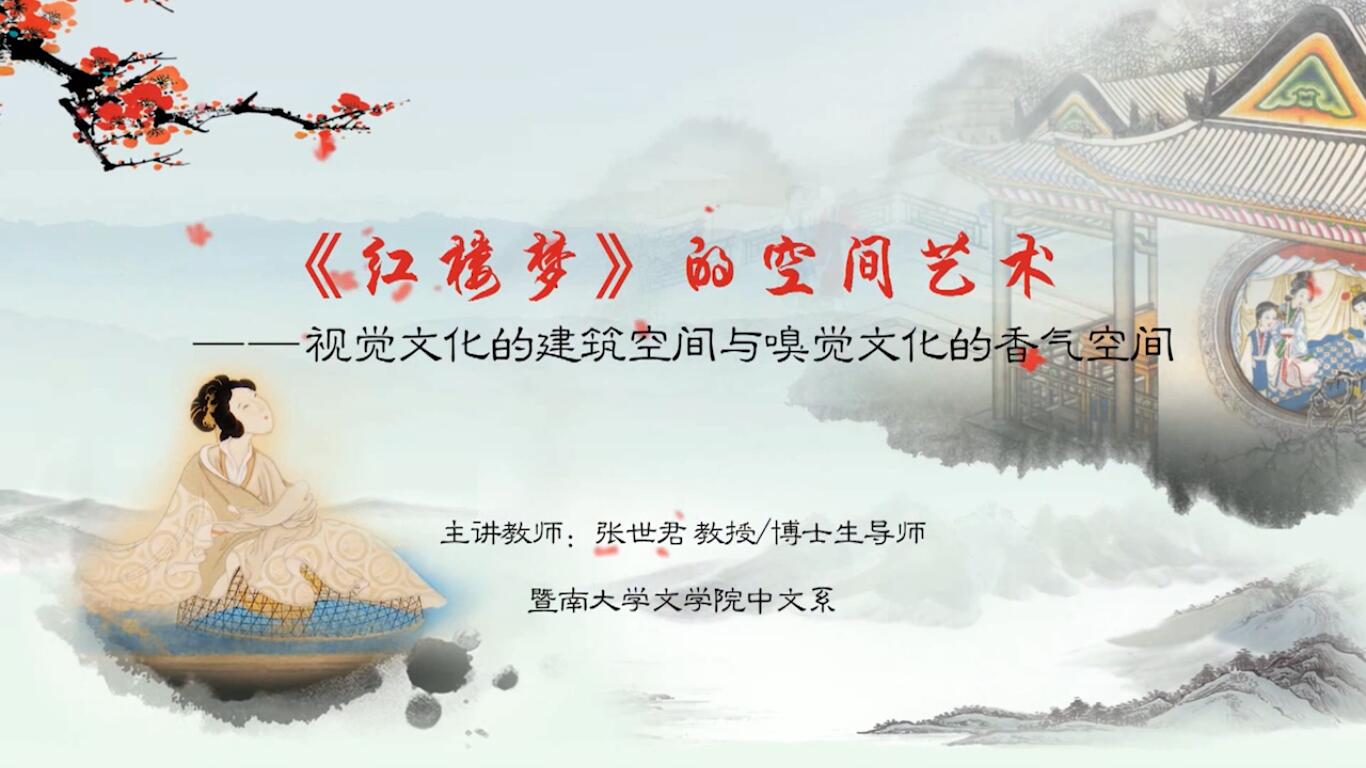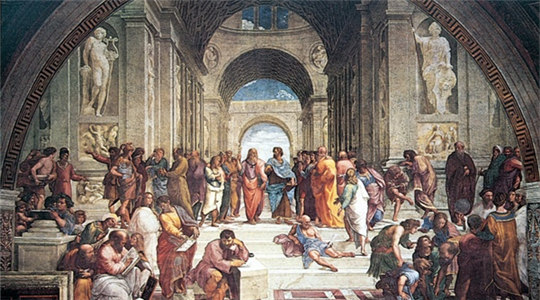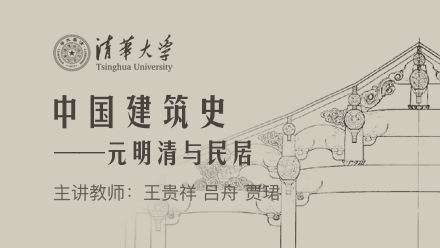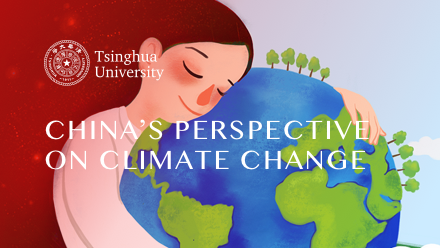
当前课程知识点:Plato, Socrates, and the Birth of Western Philosophy > Introduction(1)——Philosophy, Religion and Culture > 4.Culture > Culture
返回《Plato, Socrates, and the Birth of Western Philosophy》慕课在线视频课程列表
返回《Plato, Socrates, and the Birth of Western Philosophy》慕课在线视频列表
下面我讲一下什么是文化
如果要给文化下一个最宽泛的定义
我看到有学者是这么说的
文化是人类的创造活动
及其创造成果的总和
但凡人类的创造皆可称为文化
我们在日常生活中间
人们也使用文化这个字眼
比如用文化来表示
一个人的受教育程度
说这个人有文化 那个人没文化
有一位学者
给文化下过这么一个定义
这样一个文化定义是非常哲学化的
对于文化问题
我本人也做过一些研究
我在一篇文章中间给文化
下了这么一个定义
我说 文化是一个高度综合的统一体
文化精神渗透于民族
社会的各个部门和领域
所以 文化研究应当将文化的各个部门
各种起作用的因素
作为一个有机的综合体
联系起来进行考察
这个定义是否妥当
请同学们思考
我们刚才讲了
文化是一个大系统
但是文化又是可以分层的
学者们现在一般把文化分为三个层次
一个是器物层面的文化
第二个是制度层面的文化
第三个是精神层面的文化
什么叫做器物层面的文化呢
我可以这么说
同学们现在眼睛看出去看到的一切
都是器物层面的文化
比如 你坐的板凳
你看到的老师 所使用的黑板
这些都是人造物 它同样也是文化
那么什么是制度层面的文化呢
我们生活在一个社会里头
一个团体有它自己的制度
一个国家有它自己的制度
这些制度就是制度层面的文化
还有 什么是精神层面的文化呢
我们进了大学
我们知道有各种各样的学科
有各种各样的研究
这些研究出来的东西
这些研究出来的成果
就是人类精神活动创造的成果
我们刚才反复提到的
哲学和宗教
在这个意义上都属于精神层面的文化
所以我现在再明确地说一下
哲学在文化系统中的位置
哲学是一种批判性的理论思维
下面我讲一下轴心时代的问题
什么叫轴心时代
德国哲学家雅斯贝尔斯
在《历史的起源与目标》这本书中间
他在研究了全球各大文明
各种文化系统以后 他指出
什么叫轴心时代 我的理解是
这个时代对于整个人类发展
起着关键的作用
什么叫 轴
就是 我们用个通俗的比喻
它就是车轮子
这个轴 对于车轮子所起的作用
就是一个定向的作用
一个车轮子要是没有车轴
它是不可能沿着固定的路线前进的
所以 雅斯贝尔斯提出这个思想以后
被学者们广泛地采用
我们看到 自从轴心时代以来
人类各大文明在漫长的历史中
相对独立地在发展
乃至于发展到当代
最终融汇在现代化和全球化的洪流中
在这么一个过程中间 我们看到
在诸多古代文明中
只有中国 印度 希腊
产生出了一般意义上的哲学
而且 这三个民族的哲学
是在大致相同的历史时期诞生的
在我们中国 我们说
有先秦诸子 百家争鸣的一个时代
我们中国的古典著作
里面包含着丰富的哲学思想
在印度 也就是在这个所谓的轴心时代
当时印度的宗教 特别是佛教
有了很大的发展
在这些佛教的典籍中间
包含着丰富的哲学思想
我们还要提到希腊
希腊哲学诞生于公元前6世纪
经过了几个世纪的发展
到了公元3世纪的时候
希腊哲学达到了它的鼎盛阶段
也就是所谓的古典阶段
最后 希腊哲学又继续地
随着时代的变迁而继续地发展着
所以我们看到
在这个所谓的轴心时代
这三种 这三个民族 这三个国家
产生了一般的哲学
在轴心时代形成的几大主要文明
后来又各自经历了自身的发展
因此一直到当代 中西文化
中外文化之间 仍旧存在着许多差异
在上个世纪20年代的时候
中国有一批知识分子
包括中国共产党的领导人李大钊先生
他们观察到中西文化之间的巨大差异
从物质层面 制度层面 行为层面
精神层面去仔细地做了对照
同时提出
中西文化的差异的存在是客观的
但是通过中西文化的交流
通过学习外国的 西方的先进的文化
可以对中国文化进行改造
从而提升中国文化自身的层次
他们的这些比较 不仅处在制度层面
也还深入到
对中外文化精神层面差异的比较
他们谈论了中外文化的信仰上的差别
道德上的差别 气质上的差别
思维方式的差别 所以他们最后
得出的基本结论大体上是这么几条
第一 西方的文化重视理论
重视思辩
而中国的文化重视经验 重视直觉
第二个差别是
西方注重细节的分析
而东方的思维注重整体的综合
第三个方面 中外的价值观
和人生追求有重大的差别
这种差别体现在社会生活的各个层面
这几点差别其中很重要的几个方面
都涉及到思维方式的问题
涉及到终极关怀问题
所以我们在了解了这些
文化学家所做的这些区别以后
我们可以 进一步的
在我们的学习过程中间
来加以确证和深入的思考
-1.Etymology
-2.Definition and the History of Philosophy
--Definition and the History of Philosophy
-3.Religion
--Religion
-4.Culture
--Culture
-5.Theory of Cultural Transformation and Interaction: Five theoretical premise
--Theory of Cultural Transformation and Interaction: Five theoretical premise
-6.Theory of Cultural Transformation and Interaction:Five Basic Position
--Theory of Cultural Transformation and Interaction:Five Basic Position
-7.The Significance of Theory of Cultural Transformation and Interaction
--The Significance of Theory of Cultural Transformation and Interaction
-Self-test Exercises
-Thinking Questions
-1.The Birth Environment of the Greek Philosophy(1)
--The Birth Environment of the Greek Philosophy(1)
-2.The Birth Environment of Greek Philosophy(2)
--The Birth Environment of Greek Philosophy(2)
-3.The Stages and Schools of Greek Philosophy(1)
--The Stages and Schools of Greek Philosophy(1)
-4.The Stages and Schools of Greek Philosophy(2)
--The Stages and Schools of Greek Philosophy(2)
-5.The Local Characteristics of Ancient Greek Philosophy and the progress of internationalization(1)
--The Local Characteristics of Ancient Greek Philosophy and the progress of internationalization(1)
-6.The Local Characteristics of Ancient Greek Philosophy and the progress of internationalization(1)
--The Local Characteristics of Ancient Greek Philosophy and the progress of internationalization(1)
-7.The termination of Ancient Greek Philosophy
--The termination of Ancient Greek Philosophy
-Self-test Excercises
-Thinking Questions
-1.A transition to rational thinking(1)
--A transition to rational thinking(1)
-2.A transition to rational thinking(2)
--A transition to rational thinking(2)
-3.A transition to rational thinking(3)
--A transition to rational thinking(3)
-4.A transition to rational thinking(4)
--A transition to rational thinking(4)
-5.Heraclitus’ thinking
-6.Parmenides’ thinking(1)
-7.Parmenides’ thinking(2)
-Self-test Excercises
-Thinking Questions
-1.Seeking the origin:the early philosophers(1)
--Seeking the origin:the early philosophers(1)
-2.Seeking the origin:the early philosophers(2)
--Seeking the origin:the early philosophers(2)
-3.Seeking the essence: Plato’s theory of Form (1)
--Seeking the essence: Plato’s theory of Form (1)
-4.Seeking the essence: Plato’s theory of Form (2)
--Seeking the essence: Plato’s theory of Form (2)
-5.Seeking to on: Aristotle’s ontology and metaphysics (1)
--Seeking to on: Aristotle’s ontology and metaphysics (1)
-6.Seeking to on: Aristotle’s ontology and metaphysics (2)
--Seeking to on: Aristotle’s ontology and metaphysics (2)
-Self-test Excercises
-Thinking Questions
-1.The lexical meaning
-2.Epistemology(1)
-3.Epistemology(2)
-4.Epistemology(3)
-5.Epistemology(4)
-6.The features
-Self-test Excercises
-Thinking Questions
-1.A lexical meaning(1)
-2.A lexical meaning(2)
-3.A lexical meaning(3)
-4.Plato’s Dialectics(authentic true)
--Plato’s Dialectics(authentic true)
-5.Aristotle’s Logics(judging true)(1)
--Aristotle’s Logics(judging true)(1)
-6.Aristotle’s Logics(judging true)(2)
--Aristotle’s Logics(judging true)(2)
-Self-test Excercises
-Thinking Questions
-1.A lexical meaning
-2.The occurrence and development of the ancient Greek Science(1)
--The occurrence and development of the ancient Greek Science(1)
-3.The occurrence and development of the ancient Greek Science(2)
--The occurrence and development of the ancient Greek Science(2)
-4.The occurrence and development of the ancient Greek Science(3)
--The occurrence and development of the ancient Greek Science(3)
-5.The occurrence and development of the ancient Greek Science(4)
--The occurrence and development of the ancient Greek Science(4)
-6.The occurrence and development of the ancient Greek Science(5)
--The occurrence and development of the ancient Greek Science(5)
-7.the technicalization and application of ancient Greek Science(1)
--the technicalization and application of ancient Greek Science(1)
-8.the technicalization and application of ancient Greek Science(2)
--the technicalization and application of ancient Greek Science(2)
-Self-test Excercises
-Thinking Questions
-1.A Lexical meaning
-2.Plato’s theory of Love
-3.The high praise to the love god: a reading on Symposium (1)
--The high praise to the love god: a reading on Symposium (1)
-4.The high praise to the love god: a reading on Symposium (2)
--The high praise to the love god: a reading on Symposium (2)
-5.The high praise to the love god: a reading on Symposium (3)
--The high praise to the love god: a reading on Symposium (3)
-6.The high praise to the love god: a reading on Symposium (4)
--The high praise to the love god: a reading on Symposium (4)
-Self-test Excercises
-Thinking Questions
-1.A lexical analysis
-2.The development of the Classic Greek Ethics(1)
--The development of the Classic Greek Ethics(1)
-3.The development of the Classic Greek Ethics(2)
--The development of the Classic Greek Ethics(2)
-4.The development of the Classic Greek Ethics(3)
--The development of the Classic Greek Ethics(3)
-5.The development of the Classic Greek Ethics(4)
--The development of the Classic Greek Ethics(4)
-6.From the ultimate goodness to the common goodness(1)
--VideoFrom the ultimate goodness to the common goodness(1)
-7.From the ultimate goodness to the common goodness(2)
--From the ultimate goodness to the common goodness(2)
-Self-test Excercises
-Thinking Questions
-1.A lexical meaning
-2.Ancient humanistic trend of thoughts(1)
--Ancient humanistic trend of thoughts(1)
-3.Ancient humanistic trend of thoughts(2)
--Ancient humanistic trend of thoughts(2)
-4.Ancient humanistic trend of thoughts(3)
--Ancient humanistic trend of thoughts(3)
-5.A theoretical summary
-Self-test Excercises
-Thinking Questions
-1.A lexical analysis
-2.The story of Gyges
-3.The Ancient theory of justice(1)
--The Ancient theory of justice(1)
-4.The Ancient theory of justice(2)
--The Ancient theory of justice(2)
-4.The Ancient theory of justice(3)
--The Ancient theory of justice(3)
-Self-test Excercises
-Thinking Questions
-1.An explanation to the related words
--An explanation to the related words
-2.A Platonic Republic
-3.Cicero’s people’s Republic(1)
--Cicero’s people’s Republic(1)
-4.Cicero’s people’s Republic(2)
--Cicero’s people’s Republic(2)
-Self-test Excercises
-Thinking Questions
-1.A lexical analysis
-2.The religious trends in the late period of ancient Greek philosophy(1)
--The religious trends in the late period of ancient Greek philosophy(1)
-3.The religious trends in the late period of ancient Greek philosophy(2)
--The religious trends in the late period of ancient Greek philosophy(2)
-4.The religious trends in the late period of ancient Greek philosophy(3)
--The religious trends in the late period of ancient Greek philosophy(3)
-5.The religious trends in the late period of ancient Greek philosophy(4)
--The religious trends in the late period of ancient Greek philosophy(4)
-6.The collision between faith and reason(1)
--The collision between faith and reason(1)
-7.The collision between faith and reason(2)
--The collision between faith and reason(2)
-Self-test Excercises
-Thinking Questions
-1.An explanation to the related words
--An explanation to the related words
-2.Communion with gods(1)
-3.Communion with gods(2)
-4.Communion with gods(3)
-5.Communion with gods(4)
-6.Plotinus’ mystical system of thoughts
--Plotinus’ mystical system of thoughts
-Self-test Excercises
-Thinking Questions
-1.The local characteristics of the ancient Greek Philosophy
--The local characteristics of the ancient Greek Philosophy
-2.The progressive universalization of the ancient Greek Philosophy
--The progressive universalization of the ancient Greek Philosophy
-3.The basic spirits of the ancient Greek Philosophy(1)
--The basic spirits of the ancient Greek Philosophy(1)
-4.The basic spirits of the ancient Greek Philosophy(2)
--The basic spirits of the ancient Greek Philosophy(2)
-Self-test Excercises
-Thinking Questions






